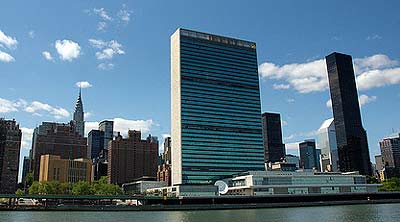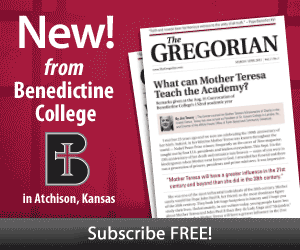Faith
Reflections on the Pope as he is about to speak at the United Nations

When I first heard that Cardinal Ratzinger had been elected to the papacy, my reaction was, “Good. We’re going to stick it to the liberals!” There had been so much discussion following John Paul II’s death about whether the Church would now accommodate herself to the secular city via women’s ordination, etc., that I could only breathe a sigh of relief that the Tradition was once again safely in the hands of a traditionalist.
Then I started actually reading the works of the newly-elected Pope Benedict XVI. I could hardly imagine that anyone could be as great a gift to the Church as a theologian as John Paul II had been, but I quickly came to recognize that Benedict possesses gifts as profound in their way as John Paul’s. Benedicts’ works are lively, nimble, and often employ apt and poetic analogies to make his points.
As I made my way through Introduction to Christianity, Truth and Tolerance, and other writings I came to know Benedict as a thinker who understand the 3-dimensionality of Christian truth—someone who recognizes how the revelation of Christ can at once be historically conditioned—by the modes of thought common to prior ages—and how that revelation transcends the merely historical and is forever objectively true. He recognizes the difference, for instance, between medieval literary and visionary speculations about purgatory and what the faith actually compels us to believe, which turns out to be only that souls are purified before coming into Christ’s presence. Our pope is far from being a mere throwback to an earlier time. He’s someone so conversant with the historical genesis of the tradition as well as its eternal significance that he can speak with an unmatched authority to the present time.
After reading Benedict, I came to realize that my first reaction had been as trite as the disappointment reigned at first among liberals. Benedict is a gift to all Catholics, liberals and conservatives alike, for he’s thoroughly at home in the theological and philosophical conversations our times demand.
Pope Benedict’s opening remarks at the White House were a case in point. He spoke of freedom as a summons to personal responsibility. He said that democracy loses it soul when starved of virtue, which can only be nourished by a frank recognition of the truth. Score one for the conservatives, I thought, as I’m grieved by most American’s disdain for the idea of an objective truth. We are in the process of giving ourselves over to a relativistic tyranny.
At the same time, Benedict emphasized the importance of the United Nations and the search for common ground among all people. (Score one for the liberals.) Like most conservatives, I’m inclined to believe the United Nations is virtually worthless. How could any diplomatic institution worth the bother make Moammar Gadhafi’s Libya chair of its Human Rights Commisson? That’s fraud on a grand scale. Benedict knows this, though, so what is he calling us to as a pastor?
Yesterday, I began to realize that the Vatican’s preference for dialogue and diplomacy at all times, under virtually any conditions, is part of the Church’s call to the way of the Cross. We don’t have to be blind to our opponents’ mendacity. Yet, we still have to try to engage them as if they were honorable—for the sake of giving them the opportunity to be so. Christianity is a constant invitation—to any and all—to participate in the world’s redemption, despite the past. To swallow down the bile that such an exercise causes to flow is indeed a renunciation. But it’s part of giving ourselves, as persons and as nations, for the life of the world.








